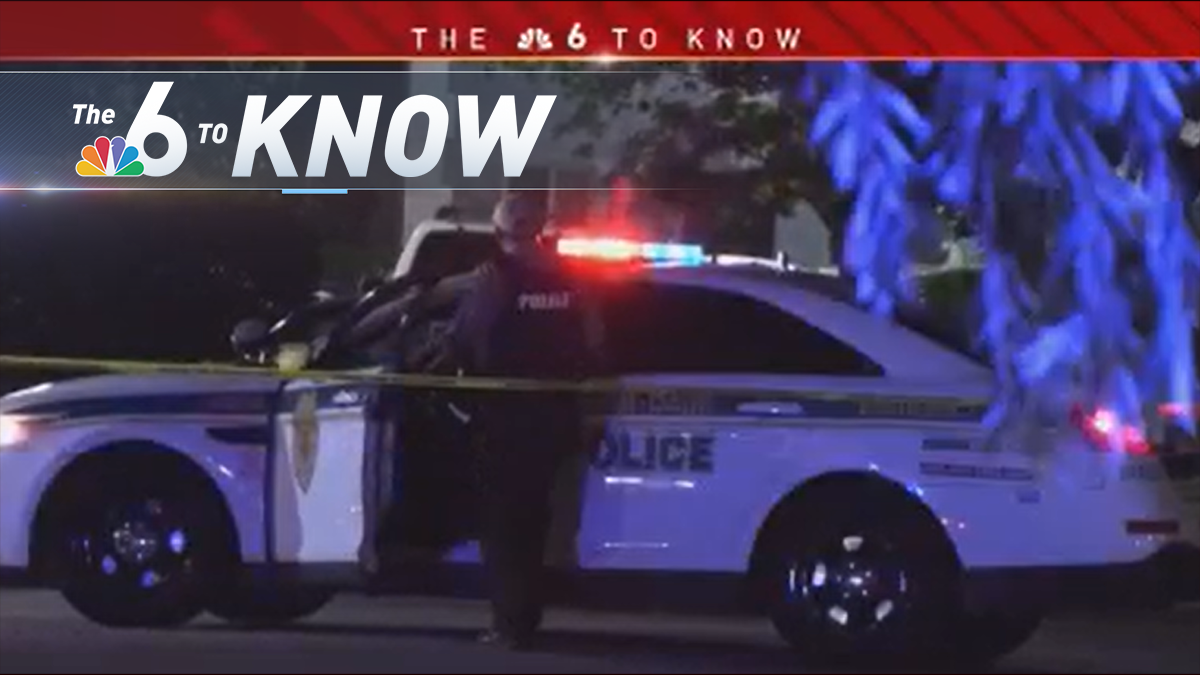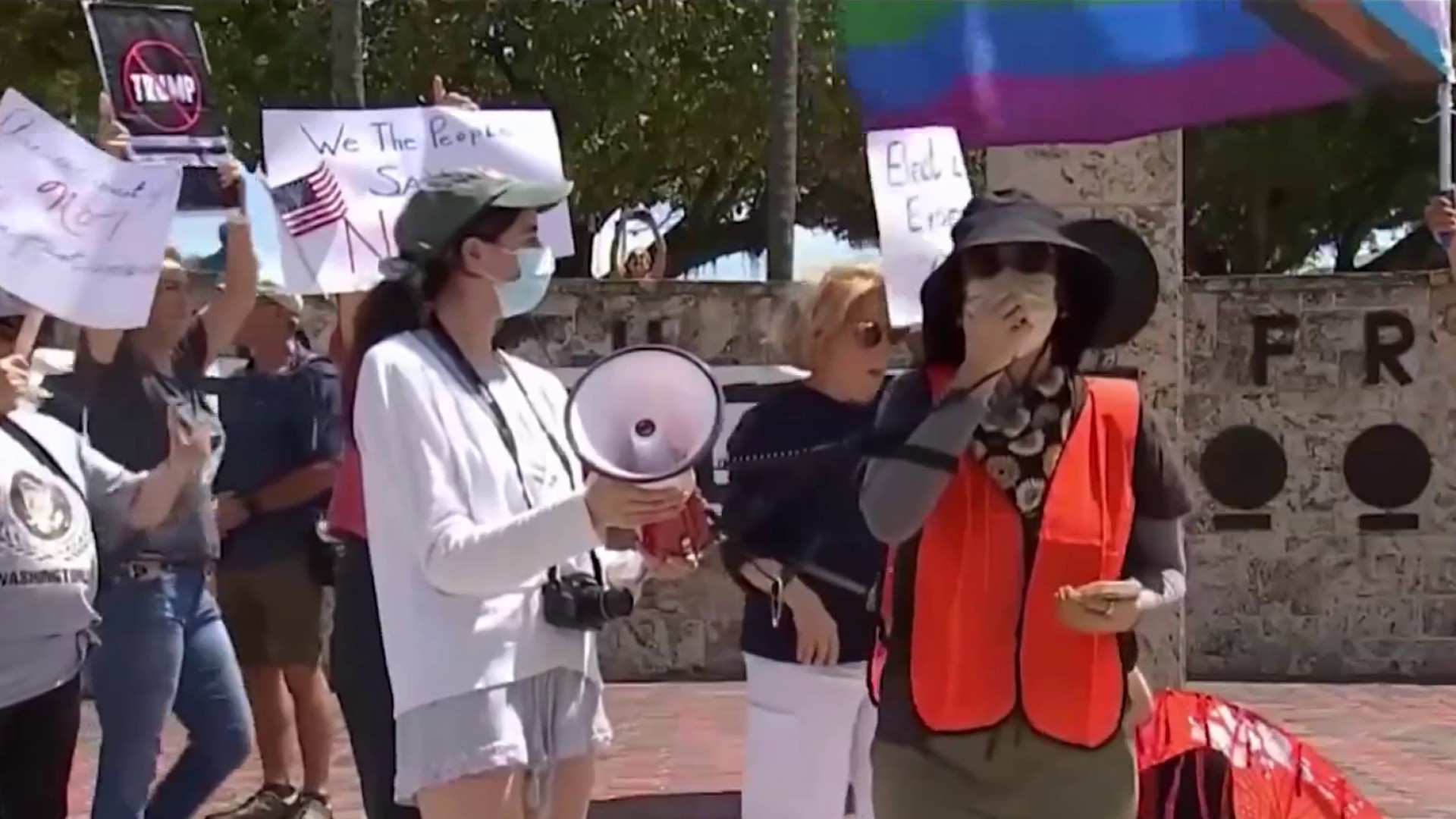Addicted babies are a growing problem in Florida, with numbers of babies born addicted to drugs rising. NBC 6 Investigator Dan Krauth reports.
Caitlyn says her addiction to prescription drugs began a decade ago after she was almost killed in a car crash.
"When I was prescribed the pain medication I was not educated," said Caitlyn who asked that her last name not to be used for this story.
Caitlyn has been addicted to prescription pain medications ever since.
When she finally decided to get help, she discovered it was going to be twice as difficult. The mother of a 15-month-old girl discovered she was pregnant.
Caitlyn felt helpless when she realized that her addiction was now affecting her unborn child.
She needed help.
"It’s devastating I have a baby inside of me that doesn’t deserve to be born addicted to drugs," said Caitlyn, who is now six months into her pregnancy.
Local
Desperate to get clean, Caitlyn had no place to turn to get the treatment she needed to become drug-free before her baby’s birth. She tried to detox on her own at home, a risky move, medical experts say, that could lead to the death of both mother and unborn child.
"I've never had this happened when I wanted to get clean so bad and couldn’t find anyone to help," she said.
The fast-growing abuse of prescription drugs among women has reached into the maternity wards in the Sunshine State with the number of babies born addicted to opiates on the rise every year in the past decade from 338 in 2005 up to 2,487 in 2015, according to hospital discharge data provided by the Agency for Health Care Administration.
Marga Figueroa-Marquez, a physician who treats newborns at Broward Health Children’s Hospital’s neonatal intensive care unit part of Broward Health Medical Center, said newborns going through drug withdrawals tend to be premature, irritable, cry a lot, their blood sugar could be affected and they usually have low-birth weight, among other problems.
"It’s very sad to see but we are here, we are prepared, we have seen the increase,” Figueroa-Marquez said. “We have been increasing the knowledge that we had of the situation and how to treat these babies."
Nowhere to Turn
Pregnant women addicted to drugs are less likely to seek drug treatment during pregnancy because of fear of criminal penalties and involvement with child welfare services. This has become a growing problem because when expecting moms don’t get help, the issue is not reported until the baby is born addicted and suffering from Neonatal Abstinence Syndrome.
Those who try to get help, like Caitlyn, have few places to turn. Most drug treatment programs won’t take pregnant women because of the risks of pregnancy.
Robin Barnett, addiction expert and author who treats patients at Reawakenings Wellness Center in Miramar where Caitlyn is currently undergoing treatment, said liability is the main factor.
"You are dealing with two people now and the unknown factors of an unborn child. …that’s frightening," Barnett said. "It’s an enormous problem and unrecognized problem and there’s so much shame behind the idea of being pregnant and addicted that they hide."
But lack of resources is also a factor. The few places available in South Florida tend to have a waiting list. That’s the case with Susan B. Anthony Recovery Center, a nonprofit organization that has the capacity to house 64 women with up three children under the age of 9.
"Over the years, we have had women who have passed away while waiting for services here and other places as well,” said Whitney Hughson, of Susan B. Anthony Recovery Center, noting that they try to prioritize pregnant women.
Hughson said many women, who not only get drug treatment at this program but other support services for them and their families, are discouraged when they hear about the waiting time which is over a month.
"Women who have insurance or have financial capability are able to get help and then the women who are on Medicaid or don’t have any kind of insurance or benefits have a lot of difficulty,” Hughson said.
Three years ago, Florida legislators appointed a task force to study prescription drug abuse and newborns. Before it got disbanded, the taskforce secured $10 million in funding to help expectant mothers struggling with addiction.
But many health advocates said those tax-dollars are not keeping up with the demand.
State Senator Rene Garcia, R-Hialeah, said addiction among pregnant women is an issue legislators are well aware of. Garcia helps set the state’s budget and the agenda for health issues and he’s worked on legislation to address funding gaps.
He acknowledged that lack of resources is an uphill battle.
"We should do more. We are doing everything we can," Garcia said, noting that addiction is a disease.
The stigma associated with addiction and pregnancy is a major obstacle for women to get help, Garcia said, because no pregnant mother wants to say she has a problem.
That’s something that Adolfo Gonzalez-Garcia, an obstetrician who treats pregnant moms at Broward Health Medical Center, sees often. He specializes in high risk pregnancies. He treats addicted pregnant mothers, but he doesn’t know this unless the patient shares that or a test is done.
"Opioids use is a disease that you need to treat like you treat diabetes like you treat hypertension or HIV," Gonzalez-Garcia said. "Is not anything but that and until we start seeing opioids disorder as that, we are not going to take care of it properly."
As for Caitlyn, she takes one day at a time, hoping that she’s making things better for her unborn baby.
"I just wish there were more options for pregnant women. It’s so hard to find someone to detox you while being pregnant,” she said. “I don’t think that’s fair,” she said.
For now, she’s looking forward to becoming drug-free and reunited with her fiancé and her daughter.
"I try to stay positive because this is the best thing I know I can be doing, for my daughter, for my unborn baby and myself.”



